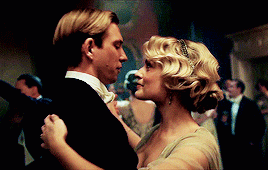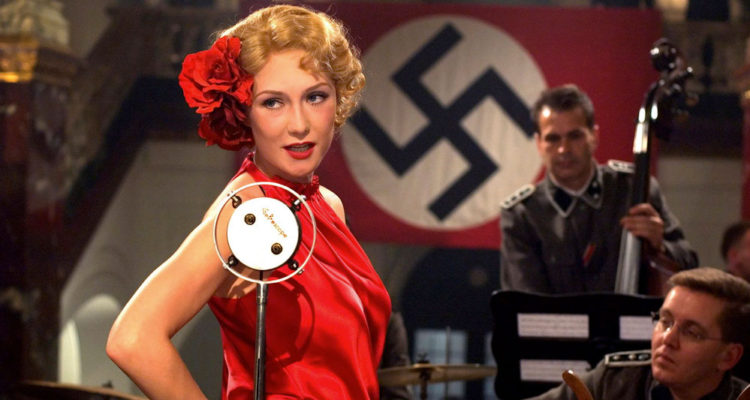For nearly a century Winnie the Pooh has enchanted generations of the young and young at heart. While readers around the world know the adventures of Pooh and his friends, less well known is the story of the father and son who inspired it. 2017's Goodbye Christopher Robin explores the story behind the beloved classic in an homage to the power of storytelling and the bond between fathers and sons. This Father's Day take a stroll in the Hundred Acre Wood with A. A. Milne and Christopher Robin.
| We didn't realize we were making memories. We just knew we were having fun. |
The story begins in 1941 with author A. A. Milne and his wife receiving a telegram telling them that their son, Christopher Robin, is missing in action. The film then flashes back decades earlier and reveals the horrors that Milne witnessed while fighting in World War I. When the war ends he returns home to his socialite wife, Daphne, and struggles to readjust to civilian life. Despite his best efforts, however, he continues to suffer from 'shell shock', or what is now known as PTSD. In an effort to exorcize the demons of his past he becomes determined to write a compelling anti-war drama, much to the dismay of Daphne, who maintains that an anti-war piece will never sell enough to maintain their lavish lifestyle. While he struggles to resume writing she gives birth to their only child, Christopher Robin. Unfortunately, she spends more time partying than parenting and Milne's trauma leaves him unable to connect with his son. As a result, Christopher Robin develops distant relationships with both of his parents. When Christopher's nanny is forced to leave to care for her sick mother and Daphne is called away for a social engagement Milne is left alone with his son for the first time. Over the course of the ensuing weeks the two spend an idyllic summer playing with Christopher's stuffed animals and crafting the imaginative adventures that will become the basis for beloved best seller Winnie the Pooh. Just as father and son finally develop the bond that they both desperately need, however, they find their relationship threatened by the media frenzy surrounding the very story that had brought them together.
Through its portrayal of A. A. Milne's professional triumphs and personal trials the film offers a bittersweet portrayal of fathers and sons. Through its dual story arcs of Milne's attempts to overcome his wartime trauma and Christopher Robin's efforts to cope with the fallout from his unwanted fame the film offers a stark portrait of innocence lost. In its flashbacks to Milne's wartime experiences and its depiction of the war's lingering impact the film highlights the ways in which World War I shattered an entire generation. Similarly, the film's portrayal of Christopher's experiences bombarded by media and tormented by bullies relates the impact of personal trauma. Despite their distant relationship both find solace in their all too brief moments of bonding. It is during their summer together that Milne is finally able to relax enough to work through his writer's block and begin to leave the ghosts of his past behind. Similarly during this holiday Christopher gains confidence expands his imagination. When Milne allows his newfound success to consume his life, however, both he and his son suffer the consequences. It is only years later when both are finally able to come to terms with their pasts and forgive both themselves and each other that they begin to move forward with their lives. For a father-son outing that is guaranteed to not leave a dry eye in the house say Goodbye Christopher Robin.
 |
| As soon as I saw you I knew a grand adventure was about to happen |
Goodbye Christopher Robin is at once a unique story behind the story of a beloved children's classic and a universal tale of family, fame, and lost innocence. Through its deftly written script the film brilliantly relates the tale of how Winnie the Pooh came to be and the terrible cost to the boy who inspired it. The uniformly superb performances bring both the life and times of A. A. Milne and the adventures of Winnie the Pooh to vibrant life. This father's day join Milne and Christopher Robin for a visit to Pooh Corner in Goodbye Christopher Robin.
 |
| How lucky I am to have something that makes saying goodbye so hard |





